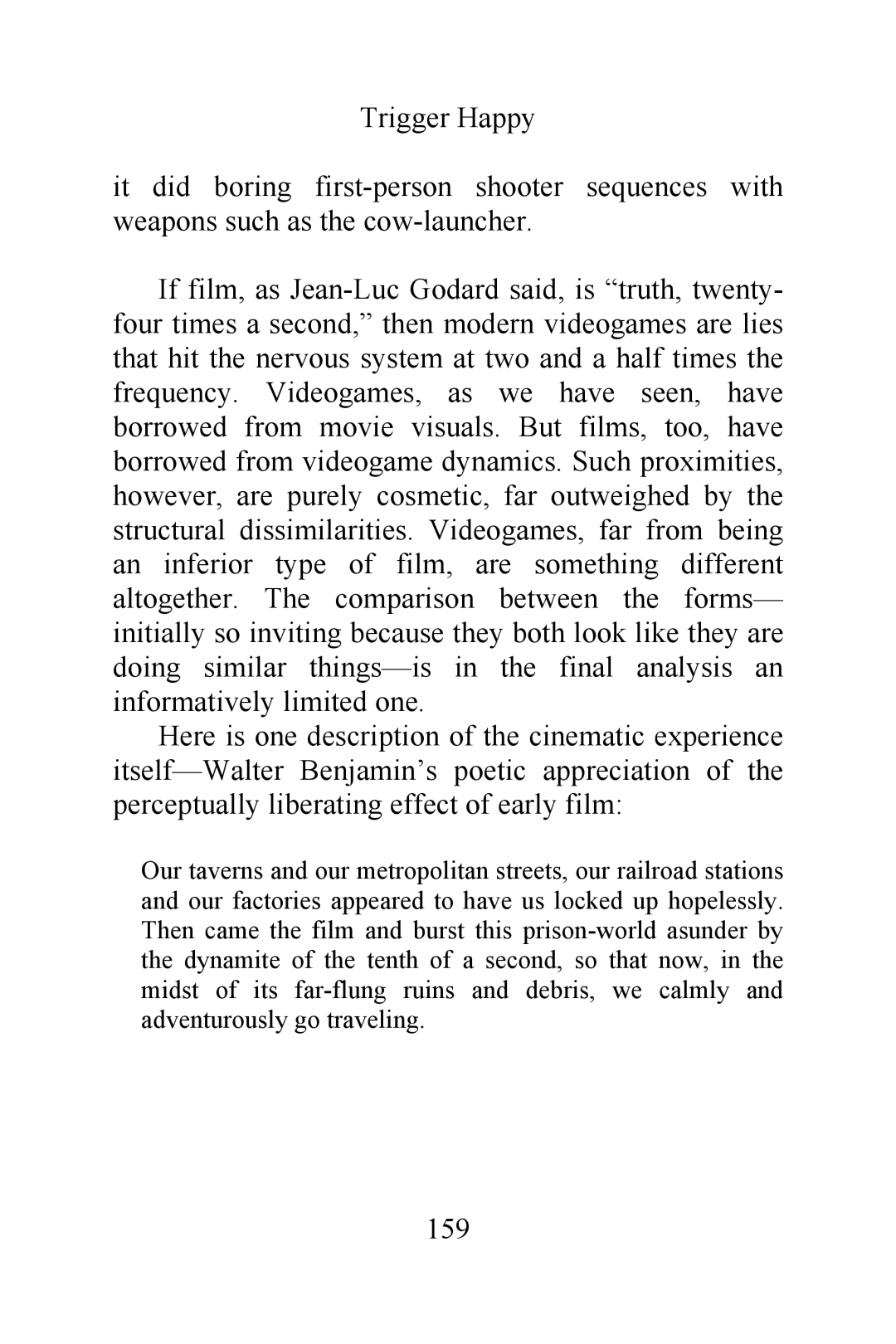Trigger Happy
it did boring first-person shooter sequences with weapons such as the cow-launcher.
If film, as Jean-Luc Godard said, is “truth, twenty- four times a second,” then modern videogames are lies that hit the nervous system at two and a half times the frequency. Videogames, as we have seen, have borrowed from movie visuals. But films, too, have borrowed from videogame dynamics. Such proximities, however, are purely cosmetic, far outweighed by the structural dissimilarities. Videogames, far from being an inferior type of film, are something different altogether. The comparison between the forms— initially so inviting because they both look like they are doing similar things—is in the final analysis an informatively limited one.
Here is one description of the cinematic experience itself—Walter Benjamin’s poetic appreciation of the perceptually liberating effect of early film:
Our taverns and our metropolitan streets, our railroad stations and our factories appeared to have us locked up hopelessly. Then came the film and burst this prison-world asunder by the dynamite of the tenth of a second, so that now, in the midst of its far-flung ruins and debris, we calmly and adventurously go traveling.
159
